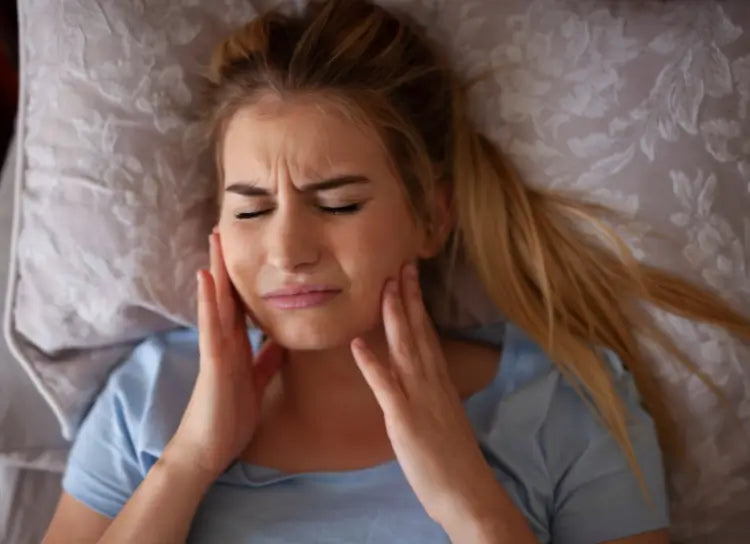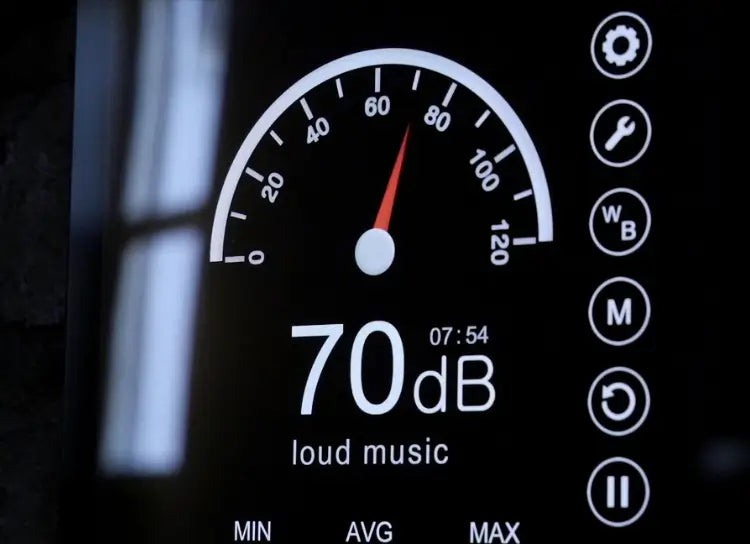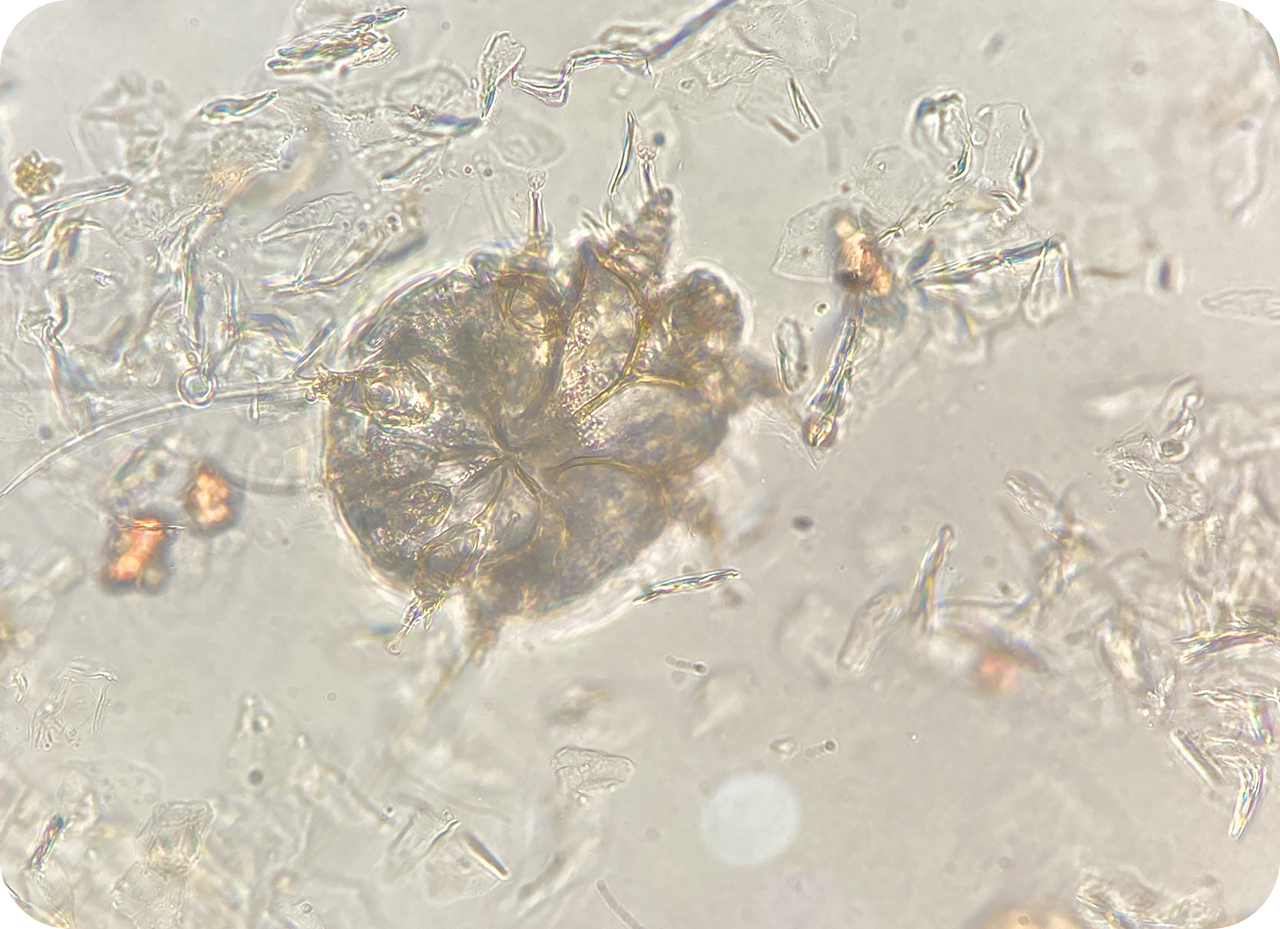Many people experience a soft snapping sound in their ears which occurs during swallowing and yawning and also appears during sleep. The sound typically happens occasionally without causing serious problems however when should you start worrying about it?
In this article, we will discuss the reasons behind ear crackling sounds and check their status as an ordinary occurrence or potential indicator of hidden medical problems and the need for professional help.
Is That Crackling Normal or a Cause for Concern?
Many individuals notice ear crackling when they swallow or yawn which happens frequently throughout the day. Noises or pops appear in the ear during swallowing actions as well as yawns and jaw movements.
As a normal occurrence this harmless ear noise appears in most people without indicating anything serious. The frequency along with characteristics of the crackling sounds will provide clear indicators about whether the issue needs medical attention.
The functionality of the Eustachian tube leads to the occasional production of crackling sound when this tube regulates pressure between the middle ear and external environment.
The occasional crackling noise which appears during swallowing or yawning episodes is typically a standard part of human hearing so it should not alarm anyone.
The sound may suggest a medical problem when it is persistent or leads to pain or shows no obvious causes of emergence.
Read more: Best Way to Remove Ear Wax in Children: Pediatrician's Top Tips
Causes of Annoying Crackling in the Ears
Various factors can lead to the development of ear crackling or popping sounds. The following list contains the major reasons behind ear crackling sounds.
1. Eustachian Tube Dysfunction
The Eustachian tube serves as a short canal which joins the nasal region at its back portion to the middle ear space. The ear uses this tube to maintain equal pressure which prevents the cracking sounds when an individual moves between different altitude levels or when their sinuses become congested.
The middle ear develops pressure buildup when the Eustachian tube becomes obstructed or malfunctions thus resulting in crackling or popping sounds.
-
What to Expect:The crackling sound might occur during swallowing, yawning and while sleeping despite the fact that these actions influence the Eustachian tube.
-
Possible Causes: Sinus infections and allergies and colds along with temperature fluctuations make the Eustachian tube both inflamed and blocked.
2. Earwax Buildup

Earwax accumulation stands as the primary reason that causes ear crackling in most cases. Earwax buildup inside the ear canal produces pressure that affects both the eardrum and the delicate structures present in the ear. The ear canal blockage produces both popping and crackling noises during swallowing and jaw movement.
-
What to Expect: The ear fullness sensation will combine with the mild pressure along with the crackling noise that you hear..
-
Solution: The use of ear cleaning tools including the Ear Camera Wax Removal and Electric Ear Cleaner enables safe wax removal when earwax buildup causes symptoms. Using these cleaning tools will enable both earwax observation and safe removal.
3. Sinus Congestion or Infections
Sinus infections alongside common colds create sinus congestion that acts as a factor affecting the Eustachian tube function. Blockage of nasal sinuses produces a buildup of ear pressure which creates a crackling sensation. Such noise becomes most prominent when performing swallowing or yawning activities.
-
What to Expect: Along with these symptoms you may encounter nasal congestion which combines with headaches and either stuffy or runny nasal drainage.
-
Solution: Decongestant medications available without prescription along with nasal sprays and saline solution rinses work to decrease sinus pressure thereby reducing crackling sensations.
4. Temporomandibular Joint (TMJ) Dysfunction
TMJ dysfunction occurs when the joint between your jaw bones and skull become malfunctioned. TMJ dysfunction produces several symptoms which include noisy sounds in the ear and crunching noises.
The position of the jaw joint next to the ear creates a link between TMJ dysfunction and ear fullness as well as pain and popping noise sensations.
-
What to Expect:The cracking noises appear more often during chewing, swallowing and verbal communication activities. Discomfort together with pain can occur in your jaw or face while symptoms may also affect the surrounding areas of your ear.
-
Solution: TMJ dysfunction treatment requires dental or physical therapy evaluation which results in dentist-approved jaw exercises and bite adjustments and alternative medical procedures.
5. Fluid in the Ear (Otitis Media)
An inflammation or infection of middle ear space known as otitis media develops when bacteria and viral infections attack this area. Most children experience this condition but adults also develop it. fluid accumulation in the middle ear causes a crackling sound both when pressure changes and when the body performs swallowing actions.
-
What to Expect: The combination of ear crackling together with hearing reduction and discomfort that produces a feeling of ear fullness characterizes this condition.
-
Solution: Doctors provide treatments through antibiotics together with decongestants and other medications which help reduce fluid buildup while easing symptoms. The doctor will perform a fluid drain operation for cases presenting extreme severity..
6. Changes in Air Pressure

Flying or diving results in fast alterations of ear pressure because the air inside the middle ear does not match the external environmental pressure. The Eustachian tube produces crackling sounds when it tries to achieve pressure equality.
-
What to Expect: The experience of distinct popping sounds occurs mainly during flight operations along with car transportation in mountain regions and aquatic activities.
-
Solution: Atmospheric pressure can be made equal by swallowing food or performing a yawn or doing some chewing of gum against the activity of activating your Eustachian tube.
7. Age-Related Changes
Hearing problems which include crackling sounds develop in elderly individuals due to structural modifications within the ear. When hearing loss occurs during aging the eardrum becomes less flexible and hearing sensitivity declines leading to crackling sounds between noises.
-
What to Expect: Age brings about a natural decline in hearing capacity as well as new ear symptoms such as crackling.
-
Solution: Regular visits to ear specialists enable monitoring as well as treatment of hearing problems that develop with age.
FAQs About Crackling in the Ear
Q1: Is it normal to experience crackling in the ear occasionally?
Yes, The ear occasionally produces normal crackling sounds which become more noticeable when swallowing or yawning yet these sounds are harmless. The condition arises due to pressure changes in the middle ear combined with minor issues in Eustachian tube function. Medical consultation should be sought if the ear crackling continues or appears with hearing loss or pain.
Q2: Can earwax buildup cause crackling in the ear?
Yes,Crackling sounds often appear in the ear because of excessive earwax accumulation. Earwax buildup inside the ear canal results in eardrum pressure because of which crackling sounds enter your hearing. The Ear Wax Cleaning Tools provide a safe solution for those who believe earwax buildup is causing ear crackling.
Q3: Can sinus infections cause crackling in the ear?
Yes,Sinus infections may result in the production of ear crackling sounds. The blockage of sinuses affects the Eustachian tubes which results in ear fullness and crackling noises. When using decongestants and nasal sprays these medicines can help recovery from ear crackling symptoms.
Q4: Should I be worried if my ear crackling doesn’t go away?
You should consult a healthcare expert if the crackling does not improve or grows worse while experiencing ear pain or hearing difficulty or fluid discharge from your ear. These could signal ear infection or Eustachian tube dysfunction. You should talk to a healthcare professional when seeking more evaluation.
Q5: What steps should I take to stop crackling sounds in my ears?
Regular ear hygiene together with avoidance of noise and effective sinus congestion management help prevent ear crackling. Regular presentation of crackling noise requires either the use of ear cleaning tools or professional medical consultation.
Conclusion
Ear crackling sounds during swallowing and sleeping as well as when yawning appear frequently yet remain harmless for most people. The majority of instances show that this crackling appears after regular pressure alterations and Eustachian tube blockages.
Furthermore persistent crackling or pain requires medical attention since they might signal conditions such as earwax buildup or sinus congestion or TMJ dysfunction.
Consider using Ear Camera Wax Removal for ear wax removal and ear health maintenance as they provide both safety and effectiveness in cleaning processes. Good hearing preservation for several years will result from treating your ears proactively to prevent discomfort and maintain ear health.
Healthcare professional consultation should always be sought when symptoms continue because it helps identify and eliminate possible severe medical conditions.
















Leave a comment
All comments are moderated before being published.
This site is protected by hCaptcha and the hCaptcha Privacy Policy and Terms of Service apply.